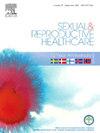Fostering empowerment through communication: The needs, expectations, and experience of maternity care among polish migrant women in Iceland
IF 1.7
3区 医学
Q3 PUBLIC, ENVIRONMENTAL & OCCUPATIONAL HEALTH
引用次数: 0
Abstract
Objective
Over recent decades, Iceland has evolved into a more diverse society, revealing disparities in perinatal outcomes for migrant women. This study explored the needs, expectations, and experiences of Polish migrant women regarding midwifery care during childbirth in Iceland.
Methods
This longitudinal qualitative study involved semi-structured interviews conducted from December 2021 to May 2022. Eight Polish women participated in two interviews: one during their third trimester pregnancy (T1) and another within 12 weeks postpartum (T2). The interviews were analyzed using reflexive thematic analysis.
Results
The longitudinal analysis generated two overarching themes: (1) Wishing for respectful individualized care and (2) The importance of receiving adequate information and sharing preferences. Additionally, one theme was constructed from T1: (1) Feeling misunderstood, isolated, and longing for support. From T2, two themes were deweloped: (1) The value of emotional and practical support from both midwives and partners during pregnancy and birth and (2) The importance of having a voice in the care process.
Conclusion
Insecurity about pain management and communication challenges were common. Open dialogue and strong connections with midwives were essential for positive care experiences. This study highlights gaps in language support, cultural sensitivity, and tailored information in Icelandic maternity care for Polish migrant women. Providing individualized care, marked by respect and clear communication, empowers women to make informed decisions and fosters a sense of control during childbirth. Addressing these gaps is vital for improving perinatal outcomes and ensuring equitable, comprehensive support for all women during this transformative life event.
- •Issue: Migrant women often face unique challenges in maternity care, leading to poorer birth outcomes and unmet needs during childbirth.
- •What is already known: Research highlights that migrant women may experience communication barriers, lack of culturally appropriate support, and increased vulnerability in healthcare settings.
- •What this paper adds: This study reveals specific gaps in language support, cultural sensitivity, and tailored information within Icelandic maternity care for Polish migrant women. By interviewing the same women both during pregnancy and postpartum, the study also provides a unique perspective on their evolving needs, expectations, and experiences. It highlights the importance of addressing these areas to enhance the sense of empowerment and overall satisfaction during childbirth.
通过沟通促进赋权:冰岛波兰移民妇女的产妇护理需求、期望和经验
近几十年来,冰岛已经发展成为一个更加多样化的社会,揭示了移民妇女围产期结果的差异。本研究探讨了波兰移民妇女在冰岛分娩期间对助产护理的需求、期望和经验。方法采用半结构化访谈进行纵向定性研究,访谈时间为2021年12月至2022年5月。8名波兰妇女参加了两次访谈:一名在妊娠晚期(T1),另一名在产后12周内(T2)。访谈采用自反性主题分析。结果纵向分析产生了两个总体主题:(1)希望尊重个性化护理和(2)获得足够信息和分享偏好的重要性。另外,从T1构建了一个主题:(1)感觉被误解、孤立、渴望支持。从T2开始,发展了两个主题:(1)在怀孕和分娩期间助产士和伴侣的情感和实际支持的价值;(2)在护理过程中拥有发言权的重要性。结论患者对疼痛管理和沟通困难缺乏安全感。开放的对话和与助产士的紧密联系对于积极的护理体验至关重要。这项研究突出了冰岛为波兰移民妇女提供的产妇护理在语言支持、文化敏感性和量身定制的信息方面的差距。提供个性化的护理,以尊重和清晰的沟通为标志,使妇女能够做出明智的决定,并在分娩过程中培养一种控制感。解决这些差距对于改善围产期结果和确保在这一变革性生活事件中为所有妇女提供公平、全面的支持至关重要。•问题:移徙妇女在产妇保健方面往往面临独特的挑战,导致分娩结果较差,分娩期间的需求得不到满足。•已知情况:研究强调,移徙妇女可能遇到沟通障碍,缺乏文化上适当的支持,并且在医疗保健环境中更加脆弱。•本文补充的内容:本研究揭示了冰岛对波兰移民妇女的产妇护理在语言支持、文化敏感性和量身定制的信息方面的具体差距。通过采访怀孕期间和产后的女性,该研究还提供了一个独特的视角,了解她们不断变化的需求、期望和经历。它强调了解决这些领域的重要性,以增强在分娩期间的赋权感和整体满意度。
本文章由计算机程序翻译,如有差异,请以英文原文为准。
求助全文
约1分钟内获得全文
求助全文
来源期刊

Sexual & Reproductive Healthcare
PUBLIC, ENVIRONMENTAL & OCCUPATIONAL HEALTH-
CiteScore
2.70
自引率
5.60%
发文量
73
审稿时长
45 days
 求助内容:
求助内容: 应助结果提醒方式:
应助结果提醒方式:


